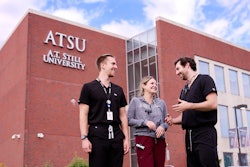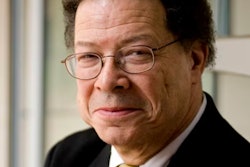The Face of AIDS: Overwhelmingly Black and Female
International conference in Toronto brings together AIDS scholars,
activists to discuss ways to combat the disease.
By B. Denise Hawkins
TORONTO
More than two decades after HIV, the virus that causes AIDS, first began killing gay White men, AIDS in America has become a Black disease. And the face it is wearing is overwhelmingly female.
The disease has quietly become the Black woman’s burden and, for many, a death sentence. AIDS is the top killer of Black women between the ages of 25 and 34. But the tide could be turning as infected Black women begin to channel their anger into power and protection, says Dr. Melanie Thompson, founder of the AIDS Research Consortium of Atlanta. She is the principal investigator of a new Atlanta-based study that found that faster HIV tests administered in the field lead to more young and low-income women getting tested. Thompson’s organization is one of the first nonprofit community-based HIV/AIDS research centers in the United States. At the 16th International AIDS Conference in Toronto, she was one of three presenters scheduled to share their research on AIDS testing and the mobilization of Black college students, but the morning forum attracted an audience of one — a reporter.
At a time when Black women make up 64 percent of the nation’s female AIDS patients, HIV testing is critically important, says Thompson. She is partnering with Spelman College and Georgia State University to provide once-a-month, on-site testing for students in Atlanta. In the Atlanta metropolitan area, HIV/AIDS “is an insidious, growing epidemic that has gone virtually unnoticed in the Black community,” she says. According to the Georgia Department of Health, 88 percent of the women diagnosed with AIDS in Atlanta last year were Black. Many of these women are also engaged in daily battles against poverty, discrimination, violence and domestic abuse — issues that pose barriers to them getting tested, treated or just staying healthy.
But fear of infection or death apparently hasn’t been enough to motivate some Black women to protect themselves, says Dázon Dixon Diallo, founder and president of Atlanta’s SisterLove Inc. Founded in 1989, SisterLove is today considered the largest women’s AIDS organization in the Southeast. “Despite the data, we don’t personalize the disease or see ourselves at risk,” Diallo says.
Knowing your HIV status, she explains, not only helps to curb the spread of the disease by reducing risky behaviors, but can help those who are infected make informed decisions about their health care options.















